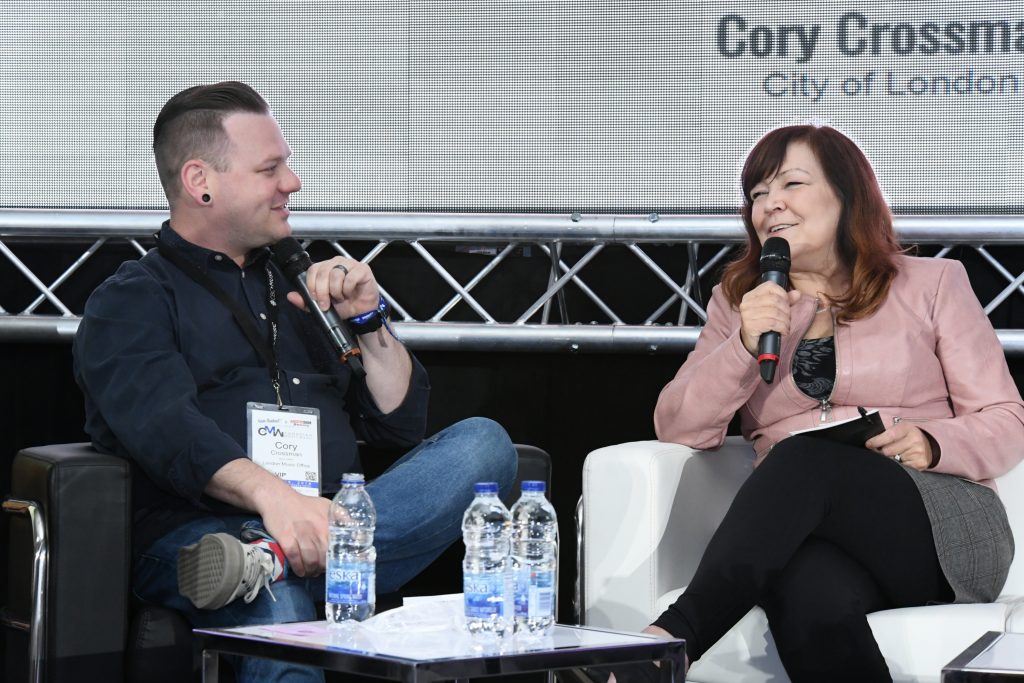Earlier today Music Canada’s President and CEO, Graham Henderson, appeared before the Standing Committee on Canadian Heritage to provide testimony on remuneration models for artists and creative industries as part of the Copyright Act review. Below is the full-text of Henderson’s remarks.
My name is Graham Henderson, and I am the President and CEO of Music Canada. We are a passionate advocate for music and those who create it.
I am very pleased to see the Heritage Committee studying remuneration models for artists and creative industries. This is an aspect of the music industry ecosystem that I, and Music Canada, have for years been working to modernize. Creating a functioning marketplace where creators receive fair compensation for the use of their works forms the bedrock of our mission.
But the reality for Canadian music creators is there are provisions in our own Copyright Act that prevent them from receiving fair market value for their work.
I believe the best way that this committee can assist in creating a marketplace that is transparent and supports Canadian creators is by providing the government with straightforward, accessible solutions to address the Value Gap.
Music Canada produced a comprehensive report on the Value Gap in Canada which you will find in French and English in front of you.
We define the Value Gap as “the significant disparity between the value of creative content that is accessed and enjoyed by consumers, and the revenues that are returned to the people and businesses who create it.”
Today, more music is consumed than at any time in history. However, the remuneration for that content has not kept pace with the record levels of consumption.
I was pleased to hear Minister Joly recognize this point earlier this year, when she stated:
“The benefits of the digital economy have not been shared equally. Too many creators, journalists, artists have been left behind.”
The origins of the Value Gap extend back more than two decades to a time when countries around the world, including Canada, began adapting and interpreting laws created in another era to protect common carrier telephone companies in the then-dawning digital marketplace.
Around the world those laws understood the internet as a series of “dumb” pipes where your browsing habits were anonymous and the data travelling between sites was so vast it was unknowable. But twenty years later we know the Internet is composed of the “smartest pipes” humankind has ever made. Your web habits are meticulously tracked and the metadata that it generates is collected, analyzed and sold every second of everyday.
While well-intentioned when they were created, the impact of these laws today is that wealth has been diverted from creators into the pockets of massive digital intermediaries, and what little is left over for creators is concentrated into fewer and fewer hands. As a result, the creative middle class is disappearing, if it hasn’t disappeared already, and with it, numerous jobs and opportunities.
There is no need to point fingers. No one planned for the creative middle class to suffer. The important thing at this juncture is to move forward purposefully and without delay to get the rules right. You should make absolutely certain that Canada’s Copyright Act ensures a creator’s right to be fairly remunerated when their work is commercialized by others.
The foundation of the Value Gap is outdated safe harbour policies and exceptions – all around the world. A safe harbour, by the way, is a way to limit the liability of an intermediary and allow music to be consumed without payment. I know that Ministers Joly and Bains are working on this issue and having conversations with their international counterparts to find a solution to this problem.
But here in Canada, there are particular laws that exacerbate the Value Gap by effectively requiring individual creators to subsidize billion dollar commercial technology companies. Here are four steps that this committee could recommend immediately that would help creators immediately and harmonize Canadian policy with international standards:
- Remove the $1.25 Million Radio Royalty Exemption
Since 1997, commercial radio stations have been exempted from paying royalties on their first $1.25 million in advertising revenue. It amounts to an $8 million annual cross-industry subsidy paid by artists and their recording industry partners to large, vertically-integrated and highly profitable media companies. Internationally, no other country has a similar subsidy, and the exemption does not apply for songwriter and publisher royalties – meaning that performers and record labels are the only rights holders whose royalties are used to subsidize the commercial radio industry. The exemption is unjustified and should be eliminated.
- Amend the Definition of ‘Sound Recording’ in the Copyright Act
The current definition of a “sound recording” in the Copyright Act excludes performers and record labels from receiving royalties for the use of their work in television and film soundtracks. This exception is unique to television and film soundtracks, and does not apply to composers, songwriters and music publishers. It is inequitable and unjustified, particularly in light of the profound role music plays in soundtracks, and it is costly to artists and record labels, who continue to subsidize those who exploit their recordings to the tune of $55 million per year. The Act should be amended to remove this cross-subsidy.
- Amending the term of copyright for musical works
The term of copyright protection in Canada for the authors of musical works is out of line with international copyright norms. Under the Copyright Act, protection for musical works subsists for the duration of the author’s life plus a further period of 50 years. By contrast, the majority of Canada’s largest trading partners recognize longer copyright terms for musical works, and a general standard of the life of the author plus 70 years has emerged. I note that a vice-chair of this committee, Mr. Van Loan, introduced a Private Members bill on this issue and we thank you for your support.
- Private Copying: Renew Support for Music Creators
The private copying levy, originally intended to be technologically neutral, has been limited by various decisions to media that are effectively obsolete. This important source of earned income for over 100,000 music creators is now in jeopardy unless the regime is updated. Music creators are asking for the creation of an interim four-year fund of $40 million per year. This will ensure that music creators continue to receive fair compensation for private copies made until a more permanent, long-term solution can be enacted.
Each of these changes removes an unfair subsidy, harmonizes the laws within our industries and brings us to international standards, and they can be done today.
As the creative community anxiously awaited this review of the Copyright Act, an organization called Focus On Creators sent Minister Joly a letter that has now been signed by more than 3,650 Canadian creators. In that letter, the creators discussed their concerns with the Value Gap and how the Value Gap is causing the middle-class artist to disappear in Canada. The creators’ letter concludes with a message I hope you will take to heart, “We know you understand the cultural significance of our work; we hope you also see its value and crucial place in Canada’s economy. We ask that you put creators at the heart of future policy.”
Thank you.









Music Canada